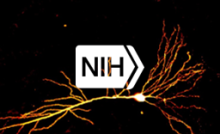
Recent BRAIN Initiative-funded study finds promise in the use of adaptive deep brain stimulation for treatment of neuropsychiatric disorders like obsessive-compulsive disorder (OCD).
In a small study, researchers funded by the National Institutes of Health captured more than 1,000 hours of brain recordings from patients with OCD in the clinic and at home. These data are a key first step towards designing improved deep brain stimulation (DBS) treatments for neuropsychiatric disorders. DBS, which is already FDA approved for some neurological disorders such as Parkinson’s disease, is also being investigated for the treatment of psychiatric conditions such as OCD. The study is published in Nature Medicine and funded through the NIH Brain Research Through Advancing Innovative Neurotechnologies® (BRAIN) Initiative. Read more about this study in the press release.
Over the summer, the authors of this study received praise for their work when their video submission of a 360-degree view of the brain of a person with severe OCD won first place in the Show Us your BRAINs! Photo and Video Contest. The images in the 30 second video were reconstructed from MRI and CT images to guide the viewer through the brain of a patient with severe OCD, highlighting the placement of the DBS electrodes and targeted brain regions. To watch the video and learn more about how it was created, check out a blog post from NIH Director Francis Collins.
This study builds on work by the OpenMind Consortium, a cross-institutional partnership also funded through the NIH BRAIN Initiative (U24NS113637). The study itself was supported by the NIH BRAIN Initiative grants UH3NS100549 and UH3NS103549 and is part of an ongoing clinical trial to develop adaptive DBS for OCD (NCT042281134 and NCT03457675).
